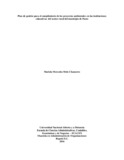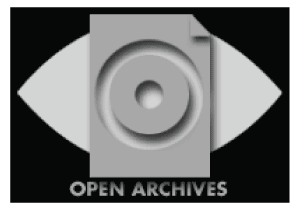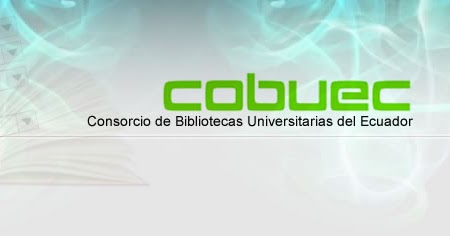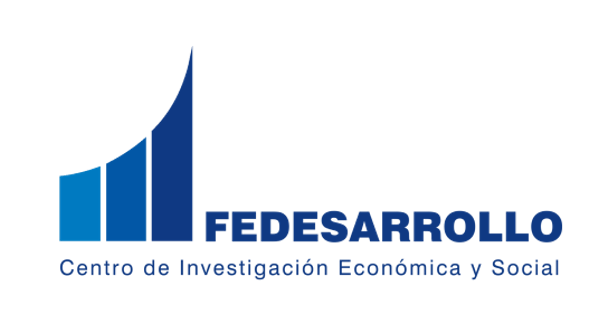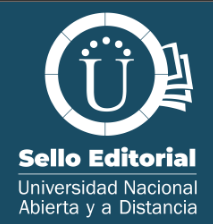| dc.contributor.advisor | González Castro, Yolanda | |
| dc.coverage.spatial | cead_-_pasto | spa |
| dc.creator | Melo Chamorro, Mariela Mercedes | |
| dc.date.accessioned | 2016-09-29T22:18:57Z | |
| dc.date.available | 2016-09-29T22:18:57Z | |
| dc.date.created | 2016-02-22 | |
| dc.identifier.uri | https://repository.unad.edu.co/handle/10596/8525 | |
| dc.description.abstract | Los sistemas ecológicos estratégicos del área rural del municipio de Pasto, presentan profundos problemas ambientales que limitan el desarrollo integral de estas comunidades afectando al mismo tiempo la naturaleza, es por ello que es preciso conocer y analizar con exactitud el estado del cumplimiento y la efectividad de los Proyectos Ambientales escolares en las instituciones educativas rurales de los corregimientos de Cujacal, Genoy, Obonuco, Catambuco, San Fernando y el Encano del municipio de Pasto.
Se abordó la investigación desde el enfoque cuantitativo, método inductivo, tipo descriptivo, razón por la cual se utilizó como instrumento principal de investigación la encuesta, que se realizó a los estudiantes de los grados once y a los coordinadores de los PRAE de las instituciones educativas estudiadas, llegando a encontrar que existen deficiencias en la gestión de los PRAE desde la formulación, la ejecución y el seguimiento.
A pesar de que se cuenta con un equipo de trabajo organizado, el PRAE se desarrolla con dificultad y sorteando muchos obstáculos que limitan sus resultados. La falta de recursos tanto financieros, como físicos, limita en gran medida la utilización las técnicas apropiadas para el diagnóstico de los problemas ambientales, y la solución de los mismos.
Pero también existen falencias en la utilización del recurso humano, debido a que falta conocimiento y práctica en el equipo PRAE para gestionar este tipo de proyectos, que si bien tienen el interés, no cuentan con el tiempo y recursos necesarios para realizarlo siguiendo la rigurosidad que necesita el proceso investigativo.
Como conclusión se propone un modelo de gestión para ser ejecutado, basado en la utilización de estrategias que se establecen en el manejo de herramientas propias y capaces de medir y evaluar el cumplimiento del proyecto en cada etapa, y especialmente involucrando a la comunidad puesto que el principal objetivos de este tipo de proyectos es resolver los problemas ambientales con y para la comunidad afectada. | spa |
| dc.format | pdf | spa |
| dc.format.mimetype | application/pdf | spa |
| dc.language.iso | spa | spa |
| dc.publisher | Universidad Nacional Abierta y a Distancia UNAD | spa |
| dc.source | instname:Universidad Nacional Abierta y a Distancia | spa |
| dc.source | reponame:Repositorio Institucional de la Universidad Nacional Abierta y a Distancia | spa |
| dc.title | Plan de gestión para el cumplimiento de los proyectos ambientales en las instituciones educativas del sector rural del municipio de Pasto | spa |
| dc.type | Proyecto aplicado | spa |
| dc.type | info:eu-repo/semantics/bachelorThesis | spa |
| dc.subject.keywords | Medio ambiente – Pasto, Nariño (Colombia) | spa |
| dc.subject.keywords | Evaluación del impacto ambiental - Pasto, Nariño (Colombia) | spa |
| dc.subject.keywords | Medio ambiente - Enseñanza | spa |
| dc.description.abstractenglish | The strategic ecological systems in rural areas of the municipality of Pasto, have profound environmental problems limiting the overall development of these communities, also affecting nature. So, it is necessary to know and analyze precisely the status of compliance and effectiveness of the environmental projects at the educational institutions of the villages of Cujacal, Genoy, Obonuco, Catambuco, San Fernando and Encano of the municipality of San Juan De Pasto.
Research was approached from the quantitative approach, descriptive, and the inductive method. That is the reason why surveys were used as a main tool of investigation. So students of the grades eleven and coordinators of PRAES (environmental school projects) of the institutions above mentioned were involved. It is found that there are deficiencies in the management of the PRAES from the point of view of the formulation, implementation, performance, monitoring and tracing.
Despite the school institutions have a team of work well organized, the PRAES is developed with difficulty and avoiding many obstacles that limit its results. The lack of both financial and physical resources, greatly limit the use of appropriate diagnostic techniques and the solutions of environmental problems.
On the other hand. There are also shortcomings in the use of the human resource, because the PRAE team does not have the enough knowledge and practice to carry out these kind of projects. In spite of they have the interest, they do not have the necessary resources and the sufficient time to run the investigative process with the rigor that is needed to accomplish its goal.
As a conclusion, a plan of management is proposed to be carried out based on the use of strategies that stablish the appropriate use of tools to measure and evaluate the performance of the project at every stage, especially involving the community, since the main objective of this type of projects is solving the environmental problems with and for the affected community. | spa |
| dc.subject.category | Medio Ambiente | spa |
| dc.type.hasVersion | info:eu-repo/semantics/acceptedVersion | spa |
| dc.type.spa | Trabajo de grado | spa |
| dc.rights.accesRights | info:eu-repo/semantics/openAccess | spa |
| dc.rights.acceso | Abierto (Texto Completo) | spa |

